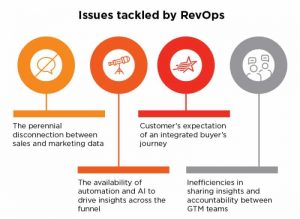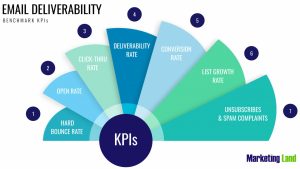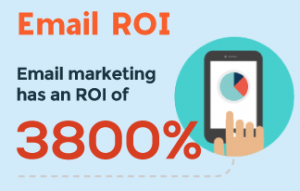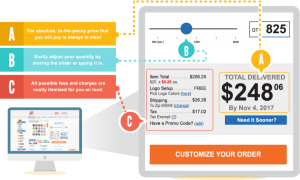On a budget, anyone can build a profitable eCommerce business. In an article for Inc.com, AJ Agrawal shares two practical tricks:
- “Focus your business around what you know.”
- “Make or resell something useful.”

When serial entrepreneur Noah Kagan challenged himself to make $ 1,000 in 24 hours, he did just that and, in the process, founded Sumo Jerky. An avid consumer of jerky, Kagan hypothesized there were enough people out there who would happily pay him money for delicious jerky. So, he spent five minutes deciding on a name and building a basic landing page. Then, he reverse engineered how many orders he’d have to sell before hitting his $ 1,000 earnings goal. Next, Kagan imagined who his ideal customer would be and drafted a marketing plan. Finally, he reached out to people he knew that were likely to place an order and before his 24 hours were up, he had surpassed his goal. With $ 3,030 in sales and $ 1,135 in profit, he proved to naysayers that building an eCommerce business — or any business really — is entirely possible with an almost negligible amount of upfront investment and a ton of willpower.
Yet even bootstrapped businesses soon realize the need to invest real capital in their own growth. Entrepreneurs everywhere can earn a meaningful income through businesses that operate on a shoestring budget. But for a company to grow faster and smarter, its leaders must be willing to spend money on things that allow them to be more effective and efficient.
Below are three ways eCommerce entrepreneurs can invest their money to fuel growth.
Advertising and paid media
When Artlog wanted to sell more event tickets online, it turned to Facebook and found a profitable customer acquisition channel. For every $ 75 it spent on Facebook ads, Artlog sold $ 200 worth of tickets; Artlog’s investment in Facebook ads generated a 150% ROI. Many businesses thrive thanks to paid advertising. ECommerce companies that take an organic only approach to marketing might appreciate the fact that ads complement and supplement all other marketing strategies.
Not convinced? Here are five reasons why you should give paid advertising a try:
- It’s fast. Organic marketing strategies such as PR, SEO and social media can take weeks, if not months, to start generating results. Paid advertising, on the other hand, works instantaneously. In a matter of minutes, you can launch a new ad campaign that will be delivered to thousands of potential customers.
- It’s easily optimized. According to advertising expert Pauline Jakober, “We all know how important organic search traffic is for long-term website marketing; however, it has a longer cycle to prove ROI. PPC can show results fast. You can start a PPC campaign on Monday and literally start seeing results in terms of traffic and conversions the next day.” And armed with that data, you can easily test new ad creatives and landing pages every day to consistently boost the ROI from your campaigns.
- It’s affordable. For as little as a few cents a click, eCommerce stores can advertise their products on Google, Facebook, Pinterest, Instagram and dozens of other marketing platforms. Best of all, you can set limits on how much you are willing to spend each day and per click so that you don’t overshoot your budget.
- It’s targeted. There are hundreds of criteria you can use to filter the audience your ads will go out to. With advanced targeting options, eCommerce companies can place ads in front of qualified shoppers only.
- It’s scalable. Paid advertising can help you reach more customers than you ever imagined. Across most of the major advertising platforms, you can spend as little as $ 1 a day or as much as a few thousand. Brands with bigger budgets may need special authorization from platform admins to increase their daily spend.
Hiring and employee engagement
Successful businesses require a healthy amount of human capital. But recruiting a new staff member can feel like a luxurious expense, especially if it is your first hire. Rather than spend money on salaries, many entrepreneurs decide they will wear different hats.
Why have a dedicated marketer, an operations specialist and a finance manager when one person can cover all three of these roles?
Very quickly though, this becomes a recipe for disaster. Instead of doing one job well, store owners do several jobs poorly and they wear themselves out. In this situation, what they fail to realize is the opportunity cost in not making a new key hire.
Entrepreneur Ricky Yean explains this as the poverty mindset. In a recent personal essay, Yean wrote, “Being poor makes you suck at using money as a resource. My time was always cheaper growing up, so I’d rather spend time than spend money. I had to fix this when we raised our first seed round [of funding], but it took quite some time. A simple decision to hire, for example, took a very long time to the point that it cost us growth.”
Business owners forget how much their time is actually worth too and neglect to use that information to their advantage. For example, if you were able to quantify your time as worth $ 50 an hour, you would always benefit if you we able to delegate some of your responsibilities to a staff member who you paid $ 30 an hour. This is especially true when your to-do list is filled with menial and repetitive tasks that do not require a lot of training or expertise. Though your time may seem “free,” it can be worth a lot more when you are focused on tackling high-impact tasks.
For projects that require very specific expertise, store owners shouldn’t be hesitant to retain a consultant. While stubborn entrepreneurs might spend hours attempting to diagnose the issue and research potential solutions, smart leaders will happily pay for expert advice which may resolve the issue within a few minutes. Though hiring a contractor to help you with special projects may seem expensive, eCommerce entrepreneurs need to remember that time is a limited commodity and you can’t put a price on your own sanity. Even if you are capable of doing something, it may not be a very good use of your time.
After making your first hire, store owners should invest in employee happiness. That is because disengaged employees cost companies $ 2,246 each year. Engaged employees, on the other hand, are 57% more effective at their jobs and 87% less likely to quit according to a survey by ADP. Companies that make it a point to develop their staff build an environment employees never want to leave and they see tremendous ROI.
Customer-centric product development

ECommerce startup Quirky, in six years, managed to raise a whopping $ 180 million from investors before it squandered the cash and filed for bankruptcy last year. The company, which prided itself on bringing dozens of new inventions to life every year failed because it abandoned its creations as soon as they were shipped.
Ben Einstein, a seasoned venture capitalist, knows, “A good company builds one product, learns from its customers, and iterates to make that product exceptional. Each step in the process is designed to refine a product and find the often elusive ‘product/market fit’ that is the basis for all successful startups.” He adds, “Quirky never iterated on its products. I own the first Quirky Aros air conditioner. It wasn’t very good but it was a great idea. I bet the second or third generation Aros would have fixed most of the small problems the product had. Aros could have become a multi-hundred million dollar product on its own but instead Quirky re-focused its energy on coffee makers and pet feeders and 50 other things.”
To build a bigger eCommerce business, you will need to make gathering and processing customer feedback a priority alongside improving existing offerings. Do not get caught up with the excitement of launching new products. Instead, spend a lot of time and energy understanding what your customers’ needs are and how you can build better solutions to their biggest problems.
Einstein advises, “When in doubt, keep your head down and listen to your customers. They’re the only real ambition that matters.” For many product-based businesses, Quirky’s shocking downfall serves as a cautionary tale. On The Language of Business blog by Harvard’s Division of Continuing Education, Dave Power notes, “Too many companies suffer from customer amnesia, as though they’ve forgotten how to have routine conversations with their customers. When it comes to new product development, these companies jump right to product design, assuming they know what customers need, and then ship the finished product as soon as possible.” Indeed, some stores owners are biased to believe their products are perfect. To grow, eCommerce entrepreneurs must abandon the theory that customers will love their latest creations. Instead, they must seek to produce goods shoppers actually ask for.
Digital & Social Articles on Business 2 Community(58)
Report Post







